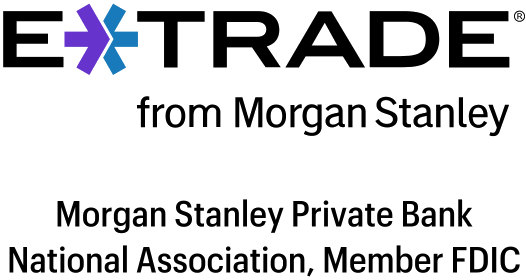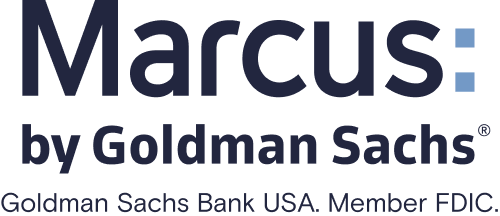What the Capital One-Discover Merger Could Mean for Bank Accounts
Capital One's purchase of Discover won't bring immediate changes to bank accounts. Debit cards might migrate onto Discover’s payment network.

Many, or all, of the products featured on this page are from our advertising partners who compensate us when you take certain actions on our website or click to take an action on their website. However, this does not influence our evaluations. Our opinions are our own. Here is a list of our partners and here's how we make money.
Capital One's acquisition of Discover was completed on May 18, 2025. The merger of these two digital banks forms the sixth-largest U.S. bank based on customer deposits (and eighth largest by total assets). The deal was first announced over a year ago and approved by regulators in April.
In addition to boosting the banks’ credit card businesses, “this deal also enables us to accelerate the growth of our national digital-first consumer banking business by adding another consumer deposit franchise and the vertical integration benefits of the debit network,” Richard Fairbank, chairman and chief executive officer of Capital One, told investors in a Feb. 20, 2024 call, the day after the deal was announced.
However, the specific impact on banking customers remains unclear. The banks have similar strengths and features across all three types of deposit accounts: checking and savings accounts and certificates of deposit. The notable differences include Discover’s payments network, compared to Capital One’s participation in the Mastercard debit network, and Capital One’s branch network.
If you bank at Capital One or Discover® Bank, here’s what you might expect from this merger.
No immediate changes
Capital One and Discover customer accounts and relationships will remain unchanged in the near future, according to an April 2025 press release. Per Capital One, the bank "will provide customers with comprehensive information regarding relevant conversion activities well in advance of any future change.”
Capital One debit cards on Discover’s network
Capital One’s chief financial officer Andrew Young told investors in the Feb. 2024 call of the bank’s plan to migrate “credit and debit spend to the Discover network.” In the April 2025 Capital One earnings call, Young mentioned that the initial timeline for debit card conversions onto Discover’s network – the second quarter of 2025 – has been pushed back by about six months.
Moving Capital One debit cards from Mastercard onto Discover’s network might mean some limits on global usage, given Discover’s smaller network. Capital One has said it plans to keep Discover’s brand.
In the same April earnings call, Capital One CEO Fairbank noted that Capital One’s entire debit card business and a portion of its credit card business will be moving onto Discover’s payment network with the current brand and acceptance that Discover has built. However, expanding Discover’s international network will be a long-term priority.
“All roads lead through building more international acceptance and then really leaning into the global brand associated with that network,” Fairbank said on the call. Putting Capital One’s card volume on the Discover network would help strengthen and accelerate growth for Capital One’s overall business as the primary benefit. Letting other banks use its network would be secondary.
Capital One checking accounts have debit cards via Mastercard, which is one of the two biggest global card payment networks alongside Visa. Discover’s debit card network, on the other hand, has a similar reach in the U.S. but not internationally. Discover debit cards work for international ATM withdrawals and purchases at participating businesses in primarily North American countries: Canada, Mexico and some Caribbean nations.
More ATM access and a new branch network for Discover customers
A big perk for Discover® checking and savings account customers would be access to Capital One’s more than 250 branches and 55 cafes, largely focused in the biggest U.S. cities. In contrast, Discover has one full-service branch. The company would remain based in Capital One’s headquarters in McLean, Virginia, while preserving a significant presence around Chicago, where Discover is based.
The deal would also allow customers to use more than 80,000 fee-free ATMs nationwide, more than either bank offers now. Capital One’s access is more than 70,000 ATMs and Discover’s is closer to 60,000 ATMs. Capital One and Discover largely overlap due to partnering with third-party ATM networks such as MoneyPass and Allpoint.
Customers would also be able to deposit cash at more than 16,000 locations. Capital One and Discover each offer this feature, though in more limited capacities. Cash is accepted at ATMs with Capital One logos, which doesn’t include Moneypass or Allpoint ATMs. Discover customers have access to cash deposits at Walmart stores.
Faster rollout of new banking tech
Michael Imerman at the University of California, Irvine, has studied the digital banking landscape for the past eight years and sees Capital One as one of the most innovative banks. He thinks the merger may strengthen the bank’s digital offering.
“I anticipate that the combined company, Capital One and Discover, will help accelerate innovation not just in payments but in commercial and consumer banking product offerings,” Imerman, assistant professor of teaching in finance and faculty director of the master of finance program at the Paul Merage School of Business, UC Irvine, said in an email.
“Consumers have options to get bank-like products from fintech and pure tech competitors, which has put pressure on commercial banks to remain competitive and provide better service to their customers,” Imerman said.

Member FDIC
Forbright Bank Growth Savings

3.85%
$0

Member FDIC
Varo Savings Account

5.00%
$0

Member FDIC
E*TRADE Premium Savings

3.50%
$0
Other features that may be similar
Bank accounts at Capital One and Discover mostly overlap in costs and features. Their checking and savings accounts have no monthly fees or overdraft fees. Savings accounts and certificates of deposit have competitive rates. They belong to Zelle’s fast payments network and have direct deposits up to two days early.
Discover provides 1% cash back rewards on up to $3,000 in monthly debit card purchases, a rare and generous perk. Capital One offers interest on its checking. If Capital One provides cash back on future debit cards on the Discover network, that would be unique for such a banking giant.
Imerman doesn’t foresee major impacts on customers at either bank, given their histories of high customer satisfaction, though there is the possibility of seeing more perks.
“The combined platform will likely result in a strong rewards program that combines the best of each,” Imerman said. He noted that Discover pioneered cash back rewards in the credit card industry and that Capital One has developed a reputation for its range of redemption options, including travel, gifts cards, and statement credits.
Discover says: "All information about Discover® Online Savings has been collected independently by NerdWallet. Discover® Online Savings is no longer available through NerdWallet."












